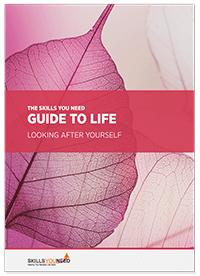4 Ways Dietitians and Nutritionists
Can Help You Lose Weigh
See also: Dieting for Weight Loss
Is your weight loss journey not going the way you planned? It’s certainly no easy task to lose weight, especially if you experience health problems either as the result of, or cause of, the weight gain.
On top of that, conditions such as polycystic ovarian syndrome (PCOS) can lead to significant hormonal changes which also affect your body’s ability to lose weight and if you’re taking certain medications to treat such a condition, this will impact the microbiome of your gut and greatly hinder your progress.
Perhaps you’ve considered seeking professional help with your weight loss, but don’t know where to start. There are many different professionals out there who specialize in health and fitness, but it’s important to find the right person who is best suited to your needs.
Some of the most common professionals who specialize in weight loss include the following:
- General Practitioners
- Nutritionists
- Dieticians
- Bariatric Physicians
- Bariatric Surgeons
Let’s talk about the difference between a nutritionist and a dietician.

Nutritionist vs Dietician
A nutritionist is a person who counsels their clients on specific diet plans based on what that individual needs so they can lead a healthier life or reach a particular health-related goal, such as weight loss or blood pressure reduction. Nutritionists have training in weight loss and health and can provide non-medical strategies to improve your health and well-being. They may have varying levels of degrees or certifications and many of them specialize in specific areas like weight management, diabetes, or heart disease.
It's important to note that depending on the country or state in which they practice, a nutritionist may need to have certain qualifications, such as certificates or licenses. However, not all states have implemented these laws which so the title is not regulated by the state board and anyone can claim to be a nutritionist.
For this reason, it is imperative that you do a thorough investigation and ensure that you personally vet any potential nutritionists you might consider hiring. Look up your state laws regarding the credential requirements for nutritionists and be sure to ask a lot of questions before entrusting your health to that person.
A dietician can do all the same things a nutritionist does and often works in the same types of settings as well. The glaring difference between the two is that a dietitian is qualified to diagnose and treat eating disorders and other specific medical conditions. You could say that all dieticians are nutritionists, but not all nutritionists are dieticians.
There are two main categories that nutritionists and dieticians can fall under with respect to what type of people they typically work with and what credentials they might have: clinical and community. Clinical nutritionists and dieticians commonly work in hospitals, long-term care facilities, nursing homes, or medical offices. This can be done on a one-on-one basis or with family units creating dietary strategies and nutritional treatments. Community nutritionists and dieticians typically work in schools, community health clinics, recreational centers, and Health maintenance organizations (HMOs).
Weight Loss With Nutritionists or Dieticians
Nutrition is a very broad and complicated subject that requires in-depth knowledge of a person’s past health history, current medical conditions which include medications they take, and any food allergies or sensitivities they may have.

Four different ways a nutritionist or dietician can help you lose weight:
-
Proper Diet: To effectively lose weight, one must adopt a healthy diet. In other words, you need to be eating the right food. This will ensure there are no major gaps in nutrition so that you not only lose weight but are able to do it in a healthy way and increase your overall quality of life. Nutritionists and dieticians can both teach you how to cook and prepare your meals in such a way that you can decrease your caloric intake or increase your metabolism.
Portion Control: It’s not just about what you eat. The portions of each food type you eat also play an important role in your weight loss journey. You might have categories of food such as protein, healthy fats, and carbs, but the portions of each category are going to make a huge difference when it comes to weight loss and your overall health.
-
Exercise Regularly: Eating the right foods is a great start, but in order to achieve optimal health and wellness you need to be exercising regularly. This doesn’t necessarily mean strenuous exercises such as HIIT workouts which are not for everyone. Even something as simple as walking for 15-30 minutes a day to start will significantly increase your weight loss.
Healthy lifestyle changes: Aside from teaching you how to eat right and exercise, nutritionists and dieticians are going to help guide you through sustainable lifestyle changes and help you kick certain habits that could be holding you back from reaching your weight loss goals. Carrying on with unhealthy habits that are not in line with your new healthier lifestyle could negate some of the progress you’ve worked so hard for.
There are many other aspects of weight loss that a nutritionist or dietician will go over with you, but you can start to see how much goes into weight loss and how important it is to curate the lifestyle that works for you to experience longevity in your health and happiness. See here for more information on how nutritionists can help you lose weight.
Nutritionist Does Not Mean Doctor
Having a nutritionist can make a huge difference in your weight loss journey, but sometimes a nutritionist just isn’t what everyone needs. Though nutritionists can hold degrees as high as a master’s in nutrition, not all of them do and you might need a professional with more in-depth knowledge and higher scope of practice. In some cases, you might need to seek help from a bariatrician or even a bariatric surgeon. Your Primary Care Provider (PCP) can also recommend treatments for weight loss, but a bariatrician has expert training in treating obesity and weight loss even after medical school.
Not everyone is going to be able to get rid of unwanted weight by simply perfecting a diet and exercising regularly. Bariatrician specializes in treating patients with obesity and diseases related to it such as diabetes or sleep apnea. Bariatric surgeons specialize in weight loss surgery. If the weight you need to lose is not body fat but excess skin, this may require surgery.
Let’s say, for example, you’ve achieved a considerable amount of weight loss. The skin will only be able to tighten up so much. Sometimes this means that a skin removal surgery is needed in order to see the incredible work you’ve put into yourself. Consult your PCP if you are unsure and as always, do your own research to find what works for you.
Further Reading from Skills You Need
The Skills You Need Guide to Life: Looking After Yourself
Based on some of our most popular content, this eBook will help you to live a happier, healthier and more productive life.
Learn how to look after your body and mind: the fundamental first steps to personal development.
This eBook, now in its second edition, with new and revised content, is designed to make life both easier and better.
To Summarize
A nutritionist is a professional that may or may not hold certifications or degrees as high as a master’s in nutrition depending on what state they practice in, so it is important to verify whether they are qualified to give you health advice. Dieticians can do all a nutritionist can do, plus they are qualified to diagnose and treat certain medical conditions.
They can both help you propel your weight loss by providing in-depth knowledge and a dietary plan with expertise in the subject of nutrition but be sure to ask your doctor what they recommend as those with certain health conditions like diabetes or heart disease may need a provider with a higher scope of practice.
About the Author
Kendyl Williams is a traveling freelance writer, professionally trained editor, and experienced researcher specializing in health and wellness articles. She has more than four years of experience in the industry and is dedicated to educating her readers about the importance of self-care.


